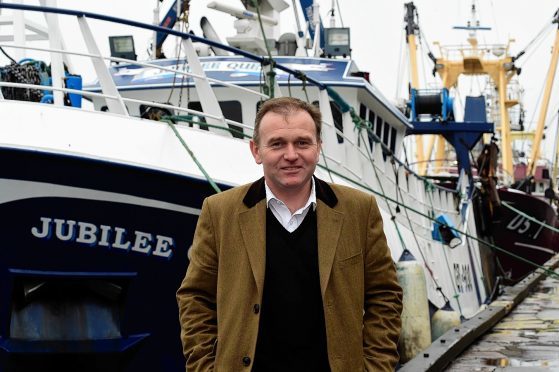A UK Government minister brought the Brexit campaign to Scotland’s most Eurosceptic constituency yesterday.
Fishing minister George Eustice MP met with trawlermen and representatives of the local industry at Peterhead’s Fisherman’s Mission.
The Camborne and Redruth MP, appointed Secretary of State for the Marine Environment in 2013, made a flying visit to the Banff and Buchan constituency which in 2014 was dubbed Scotland’s most anti-Europe seat in an academic study.
After yesterday’s discussions, Mr Eustice said there was a recognition from the fishermen that a vote to leave the European Union would not lead to an unregulated industry.
He said: “One of the things I am clear about is that even if we were to leave the European Union, we would still have a system based around quotas, although we could make it more flexible.
“We would still be aiming to fish a maximum sustainable yield – we would want to fish sustainably – and we would still be aiming to reduce or eliminate discards.”
Mr Eustice said the Vote Leave campaign was met with a “really good reaction” in Peterhead, and that a straw poll showed “overwhelming” support for Brexit.
He added: “Everybody accepted that there would still be quotas, but if we could write our own technical regulations, we could remove redundant regulations much more quickly than we can at the moment.”
The meeting was held at the Fishermen’s Mission building at Peterhead Harbour, an area which could be radically redeveloped if the port authority is successful in applying for European funding.
Peterhead Port Authority has lodged an application for grant money from the European Maritime and Fisheries Fund to help pay for a £50million revamp of the harbour.
But Mr Eustice said a vote to break ties with the EU would not sound the death knell for projects reliant on funding from Brussels.
He added: “The crucial thing with all these funds – and I’m from Cornwall where they also get structural funds from the European Union as well – is that we get back about half the funds we put in.
“If we were to stop spending £350m a week going to Brussels for our membership, we could afford these types of policies ourselves.”
